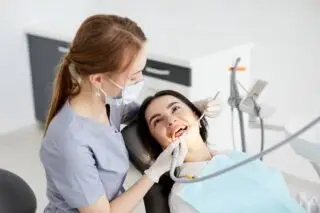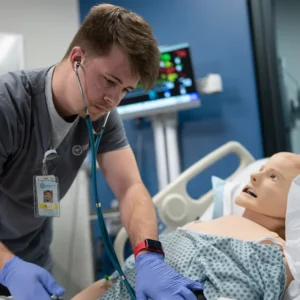Going to school for Veterinary Technology is about more than just playing with cute and cuddly animals, like this one. It’s about making them feel better! Carrington College Veterinary Technology[1] students show all the great things they’re learning in the program.
“In the classroom we mainly focus on anatomy and physiology. We also focus on various species, because we don’t work with just dogs and cats. We also focus on reptiles, birds, horses, cows. You name it we basically learn it,” said San Jose Veterinary Technology Program Director Candace Morton. “Just a few days ago we did a rat and mice lab. So we got to see those. And then we got to see some of the student’s guinea pigs,” student Kassidy said. You learn biology. You learn chemistry. Plus, behavior, because if you don’t know what the animal is feeling or thinking, you don’t know how to react and you don’t know how to give them the best medical care,” added student Katharine. “So you really have to know the animal’s behavior to understand whether or not you should go towards the animal or whether or not you should ask for help,” Kassidy added. “You start out with the basics and then you get into lab and you get the hands-on, which helps you out in clinic and the real field, “ student Danielle said. Students also talked about what skills they learn in the lab. “So blood work, you learn how to do blood smears. You do white blood cell counts, manually, by a machine,” Kelly said. “As they work into the later terms they will actually start assisting in surgery, taking radiographs, and even learning how to bandage and splint animals,” added Candace. It’s so hands on here, that this is exactly what we are doing out in the real world,” Danielle said. “We are assisting on surgery. So we are medicating the patients, and then we can go ahead and get catheters in their peripheral vain,” Katharine said. To learn more about the Veterinary Technology program here at Carrington College, visit carrington.edu today.
[1] For comprehensive consumer information, visit carrington.edu/cc/vt



